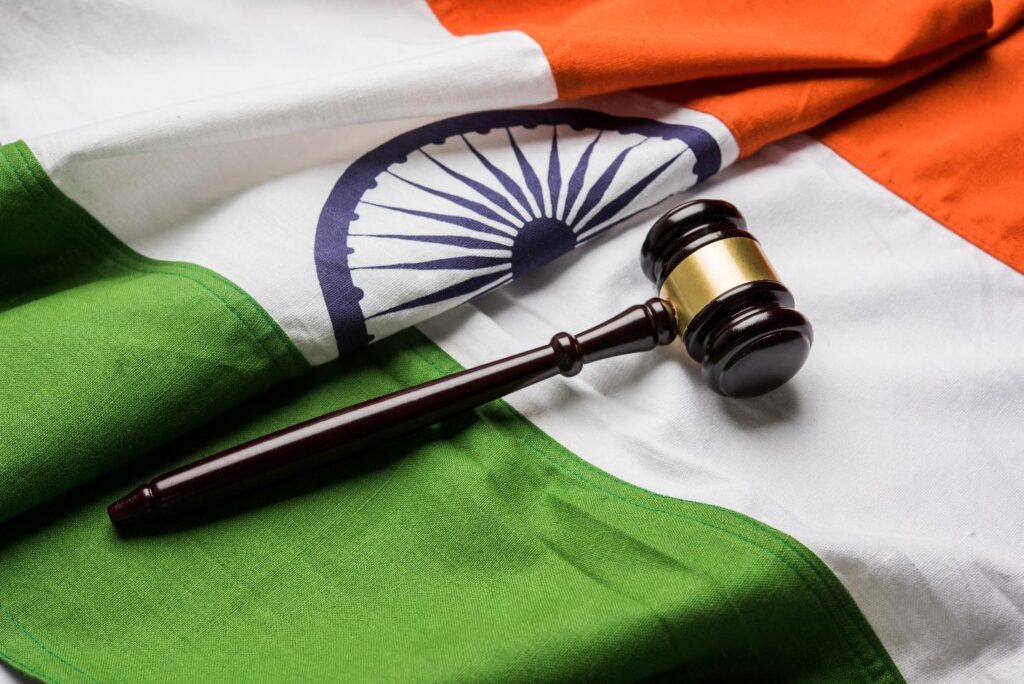India has secured its place as one of the countries reaping significant rewards from a rapidly expanding online gambling market. The nation’s long-standing affinity for skill-based games such as Andar Bahar and Teen Patti has seamlessly transitioned into the digital space, laying the foundation for a thriving industry. However, this growth hasn’t come without challenges. India continues to grapple with a fragmented regulatory system, where each state enforces its own set of rules. This legal uncertainty has created a grey zone, one where opportunity and risk walk hand in hand.

Undoubtedly, as this leisurely activity keeps soaring in popularity, whether amongst punters looking for good free bets to wager on IPL or gamblers looking for a few no deposit bonus codes, it’s becoming increasingly important for bettors to understand the legalities that surround this pastime. It’s also worth noting what NoDepositRewards had to say about this:
“For Indian players, navigating the online gambling space can feel like walking a legal tightrope. While some states have progressive views, others still treat any form of online wagering as a criminal offense, making awareness the first step toward safe play.”
With ongoing debates in the courts and state-level discrepancies in regulation, the line between legal and illegal play remains blurred. Until a unified national framework emerges, Indian players must stay informed, cautious, and choose platforms that prioritize transparency and compliance.
Post Contents
The Legal Status of Online Gambling in India
India’s online gambling industry has long operated in a legal grey area, largely due to the lack of a unified national law and the wide variation in state-level regulations. The heart of the issue is the Public Gambling Act of 1867, a colonial-era law that is outdated and does not account for today’s digital platforms. While this Act broadly prohibits most forms of gambling, it does make an important distinction between games of chance, which are considered illegal, and games of skill, which are allowed. However, the Act’s language is vague, and court rulings have provided little consistent guidance, contributing to the uncertainty.
However, this distinction is loosely defined, leading to significant confusion about what actually qualifies as a game of skill. For example, lottery and horse-race betting are classified as legal activities, while cricket betting is not currently considered a skill-based activity under existing interpretations.
Differences in Approach
This lack of centralized regulation has forced individual states to create their own gambling laws, resulting in a patchwork of rules across the country. Sikkim and Nagaland were among the first to recognize and regulate online gambling by introducing licensing frameworks. States like West Bengal, Sikkim, and Nagaland allow poker to be played both online and offline with a valid license, while Goa permits licensed casinos to operate. On the flip side, states such as Telangana, Andhra Pradesh, Tamil Nadu, Kerala, and Karnataka have passed legislation banning online gambling altogether. As you can imagine, this has led to a fragmented legal landscape that differs widely from one state to another.
Enforcement Challenges
These differing approaches have also made it difficult to effectively tackle the country’s illegal gambling problem. While states have the authority to create and enforce their own gambling laws, they often lack the technical capability to block access to online platforms that operate across state lines or from outside India. As a result, the responsibility frequently shifts to the central government, which has been repeatedly urged to take action and restrict access to these websites on a national level.
But here’s the catch, gambling is listed under State List (List II) of the Indian Constitution, meaning it’s up to each state to create and enforce its own gambling laws. This was made clear recently by Union IT Minister Ashwini Vaishnaw, who responded to DMK MP Dayanidhi Maran’s concerns in Parliament. Maran questioned whether the Centre was shirking its responsibility to regulate online gaming, especially since Tamil Nadu had already passed a ban. Vaishnaw responded by emphasizing that the Constitution gives states—not the Centre—the power to legislate on gambling, and that this division must be respected.
This mismatch between state authority and national enforcement capabilities has led to a lot of confusion and legal pushbacks. For instance, Tamil Nadu’s ban on online rummy and poker was struck down by the Madras High Court, which highlighted the legal and constitutional problems involved in such blanket bans. Similar laws in other states have also been challenged by gaming platforms claiming violations of their rights.
Despite the limited legal role, the central government has taken some action—it has blocked over 1,400 gaming websites following complaints. It has also pointed to Section 112 of the Bharatiya Nyay Sanhita as a possible legal tool for addressing problematic online gaming activity. Still, without a consistent, nationwide law, enforcement efforts remain uneven and difficult to carry out effectively.
Navigating the Grey Area
India’s legal stance on online gambling remains murky. There’s no specific law that outright bans it, but at the same time, there’s no clear, unified legislation that officially allows or regulates it either. This legal uncertainty has opened the door for both opportunity and risk, drawing in international operators and a growing number of players, yet raising serious questions around legality, user safety, and ethical gameplay. Until India introduces a well-defined national policy, the online gambling space will continue to operate in a state of legal limbo.